-
About
- About Listly
- Community & Support
- Howto
- Chrome Extension
- Bookmarklet
- WordPress Plugin
- Listly Premium
- Privacy
- Terms
- DMCA Copyright
- © 2010-2025 Boomy Labs
 Nicole Vosper
Nicole Vosper
Listly by Nicole Vosper
An overview of the key resources I've utilised during my first year of my MSc Political Agroecology with Gaia University.
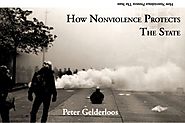
Peter Gelderloos just tears pacifism apart in this book. He looks at all the common and historical myths that circulate in social movements. He sets a case for the real violence in society - the state, and how our non-violent dogmatism protects it.
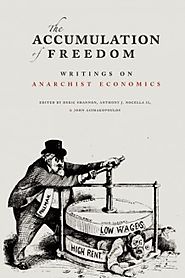
In my third output exploring the role of our economic system in influencing the acceleration of agroecology, this was the best book I read about economics.
It is a huge resources on anarchist economics, drawing on a wide range of historical and contemporary examples and thoughts. It asks more questions than it answers.
Full details: The Accumulation of Freedom: Writings on Anarchist Economics. Anthony J. Nocella (Author), Deric Shannon (Editor), John Asimakopoulos (Editor). Published by AK Press.
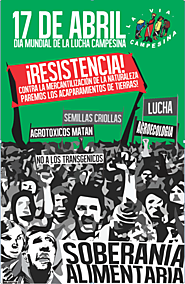
This article in the Journal of Agroecology and Sustainable Food Systems changed my life. I came across the term 'political agroecology'. It helped me to see my role in researching how we can accelerate agroecological practices through social movements & struggle.
Full reference: Agroecology and Politics. How To Get Sustainability? About the Necessity for a Political Agroecology, Manuel Gonzalez de Molina in Journal of Agroecology and Sustainable Food Systems, 37:45–59, 2013

Kevin van Meter writes that militant research refers to “research carried out with the aim of producing knowledge useful for militant or activist ends” as well as “research that is carried out in a fashion that keeps with the aims and values of radical militants.”
Through Kevin's article I busted the myth of neutrality and embraced the fact that my work can (and must) be used towards radical ends.
Read the full article here: https://www.scribd.com/doc/6010057/What-is-Militant-Research
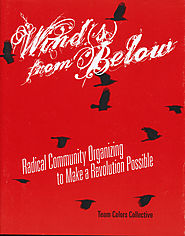
This tiny book brings highlights the revolutionary potentials of struggles around reproducing ourselves - food, housing, health. It shares examples of organising in practice, and how people are moving towards points of confrontation. It challenges 'activist subcultures' and starts where people are. I have a total intellectual crush on the Team Colours Collective. Read this book!
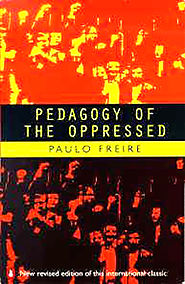
Popular Education is a methodology first introduced by Brazilian educator and writer, Paulo Freire, as a “process which aims to empower people who feel marginalised socially and politically to take control of their own learning and to effect social change”. Everyone is a student and everyone is a teacher.
I've read a lot of books & articles about popular education in my attempts to put these ideas into practice. This book captures Freire's thinking in a readable and accessible way. I'd highly recommend it to any educator-organisers.
“Education as an exercise of domination stimulates the credulity of students, with the ideological intent (often not perceived by educators) of indoctrinating them to adapt to a world of oppression.”
– Paulo Friere
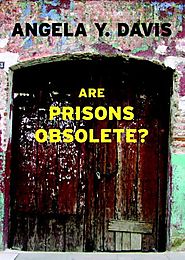
Angela Davies, ex-prisoner, author, academic & organiser, smashes the prison system in this little book. She writes powerfully busting myths about the prison industrial complex and why it exists. A must read for anyone fighting the prison system or simply challenging its role in our lives.
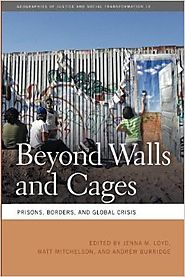
This book illuminates the relationships between prisons, migration, state control and the global spread of capitalism. It shares interviews with organisers and those fighting back in North America. It embeds an academic intellectual rigor without the elitism or inaccessible language. The stories of struggle bring it alive and make it relevant, timely and necessary. Essential reading.
Full details: Beyond Walls and Cages. Prisons, borders and global crisis, Edited by Jenna M Lloyd, Matt Mitchelson and Andrew Burridge, 2012
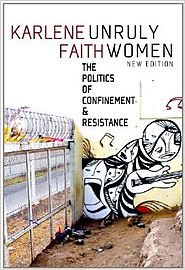
Amazing readable book on the history of women and the prison system. There are many references to Canada and North America, however it is extremely accessible & informative about women in prison in general. It has a powerful political commentary and edge. As an ex-prisoner, I found it insightful, inspiring and authentic.
Full details: Unruly Women, The politics of confinement & resistance, Seven Stories Press, New York, 1993, 2011, Karlene Faith
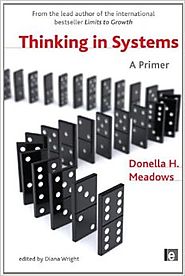
The late Donella Meadow's book 'Thinking in Systems' its the best book I've read about systems thinking. She brings to life the theory with real-life examples that help explain the complexity of systems and why we can't control them. We can only design and re-design. The book has made me evaluate how I intervene in systems, and how influencing a system's function is the greatest determinant of change. Second to changing paradigms. Highly recommended.
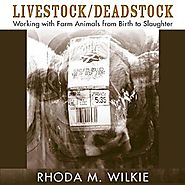
Agricultural Workers have complex and dynamic relationships with animals. In my attempt to understand these relationships, I drew on the research of Dr Rhoda M Wilkie, author of ‘Livestock/Deadstock’. In her ethnographic research with the University of Aberdeen, Wilkie wanted to gain an understanding of how those who breed, rear, show, fatten, market, medically treat and slaughter perceive and make sense of their interactions with the animals that constitute the centre of their everyday working lives.
Important reading for anyone organising for animal liberation who wants to think critically and explore different worldviews.
Full details: Wilkie, R. (2010). Livestock/deadstock. Philadelphia: Temple University Press.
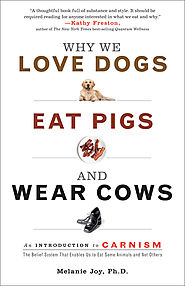
Another key influence during my output period was the work of Dr Melanie Joy, a professor exploring the psychological mechanisms in place that sustain animal agriculture and its rationalisation. She has developed the concept of carnism, a belief system that conditions us to eat certain animals.
This book explores what carnism is and how psychological tools allow us to function as if eating certain animals is natural, normal and necessary.
Full details: Joy, M. (2011). Why we love dogs, eat pigs and wear cows. [Berkeley, Calif.]: Conari.
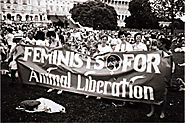
This essay introduces all of the links between the oppression of animals and gender oppression.
The article ends with: This is a call to honestly ask ourselves, a call to be brave: With what eyes do we look at animals? Do we look at animals with feminist eyes, or do we look at them with the eyes of the master, those eyes that believe in the rightness and naturalness of domination? Do we look at them with indifferent, entitled, or domineering eyes, the same kinds of eyes that have oppressed us? Or do we look at them with revolutionary eyes? This question is crucial to the future of feminism. If we continue to look at this entirely silenced, universally subjugated group with the eyes of the old paradigm, a feminist world will not be realized, because feminism’s feet will still be caught in that violent framework of human and male domination. Feminism’s hands will still be bound to the master’s rape rack.
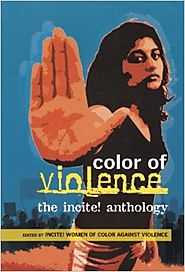
INCITE! is a national activist organization of radical feminists of color advancing a movement to end violence against women of color, trans & gender non-conforming people of color, and our communities through direct action, critical dialogue, and grassroots organizing.
This book is essential reading for all organisers, especially those involved in work resisting the prison system.
Full details: The Color of Violence: The Incite! Anthology Paperback – August 1, 2006 by INCITE! Women of Color Against Violence (Editor) Gottlieb, R. and Joshi, A. (2010). Food justice. Cambridge, Mass.: MIT Press.
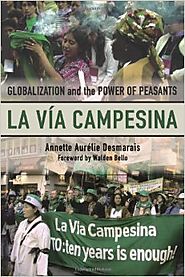
This book introduced me to the inside workings of one of the largest social movements of recent times: the small scale peasants of La Via Campesina. Written by someone that worked closely with the movement and its internal structures, it is an illuminating example of the power that being organised, connected and active has. Very inspiring.
Full details: Desmarais, A. (2007). La Vía Campesina. Halifax: Fernwood Pub.
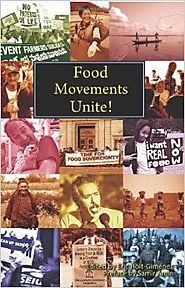
I know when I've got a lot out of a book by devouring its pages with pencil, rapidly underlining key points and inspiring quotes. Written almost before its time, this book gives a voice to many actors in the food system that have been working to transform it. From farm worker labour organising in the North to peasant movements in the South; it explores the tensions and connections between them all.
Full details: Holt-Gimenez, E. (2011). Food movements unite!. Oakland, CA: Food First Books.
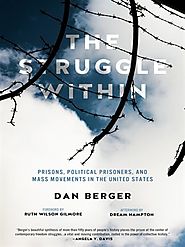
Dan Berger takes you on a journey through historical and contemporary movements for political prisoners in the United States. Its a small book but written so well and is super easy to read. It is as much a story about repression as the solidarity it ignites. The book ends with a call for more organising against the prison industrial complex in general. Highly recommended.
